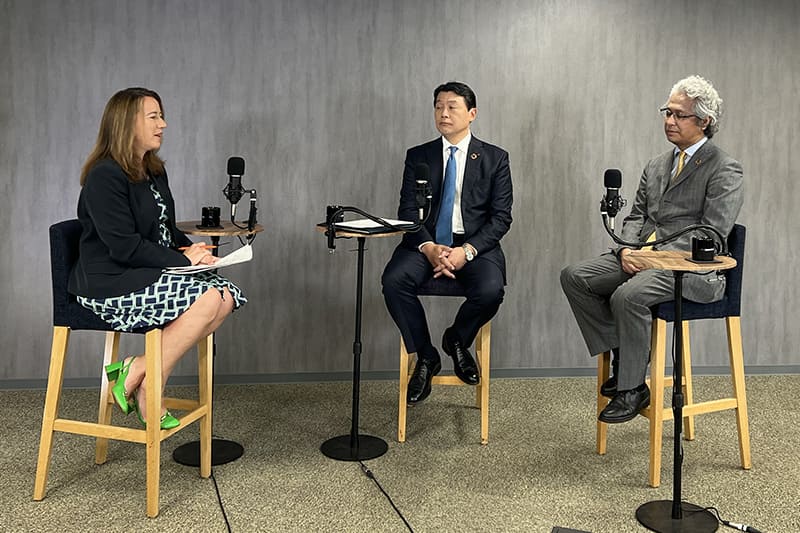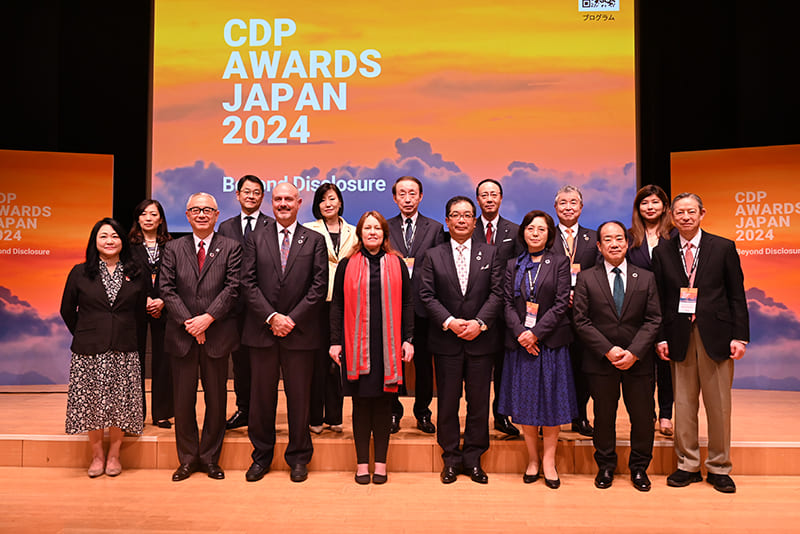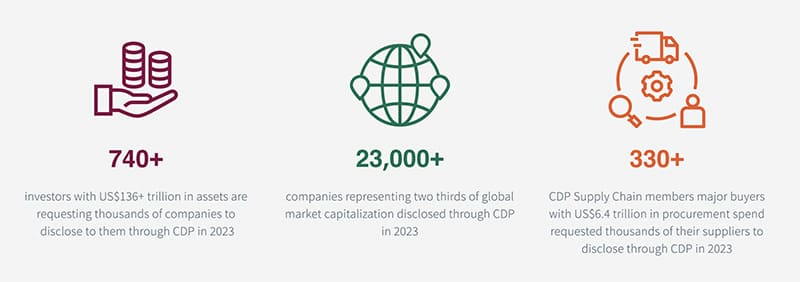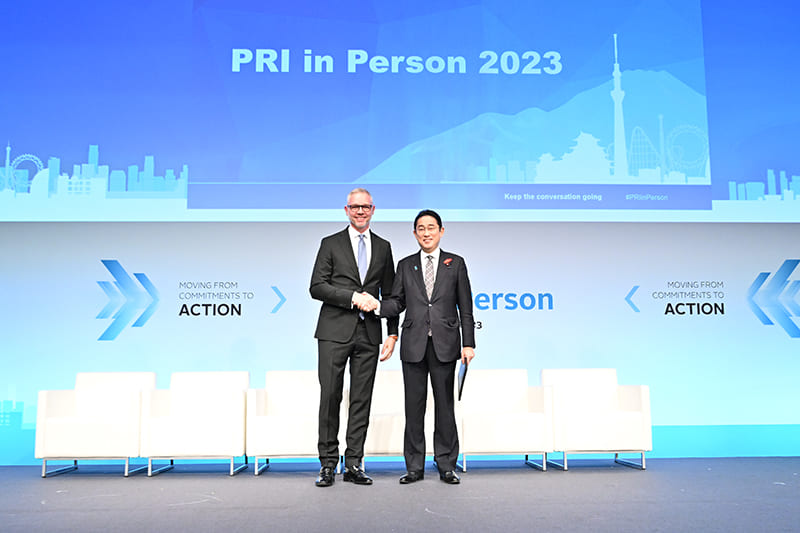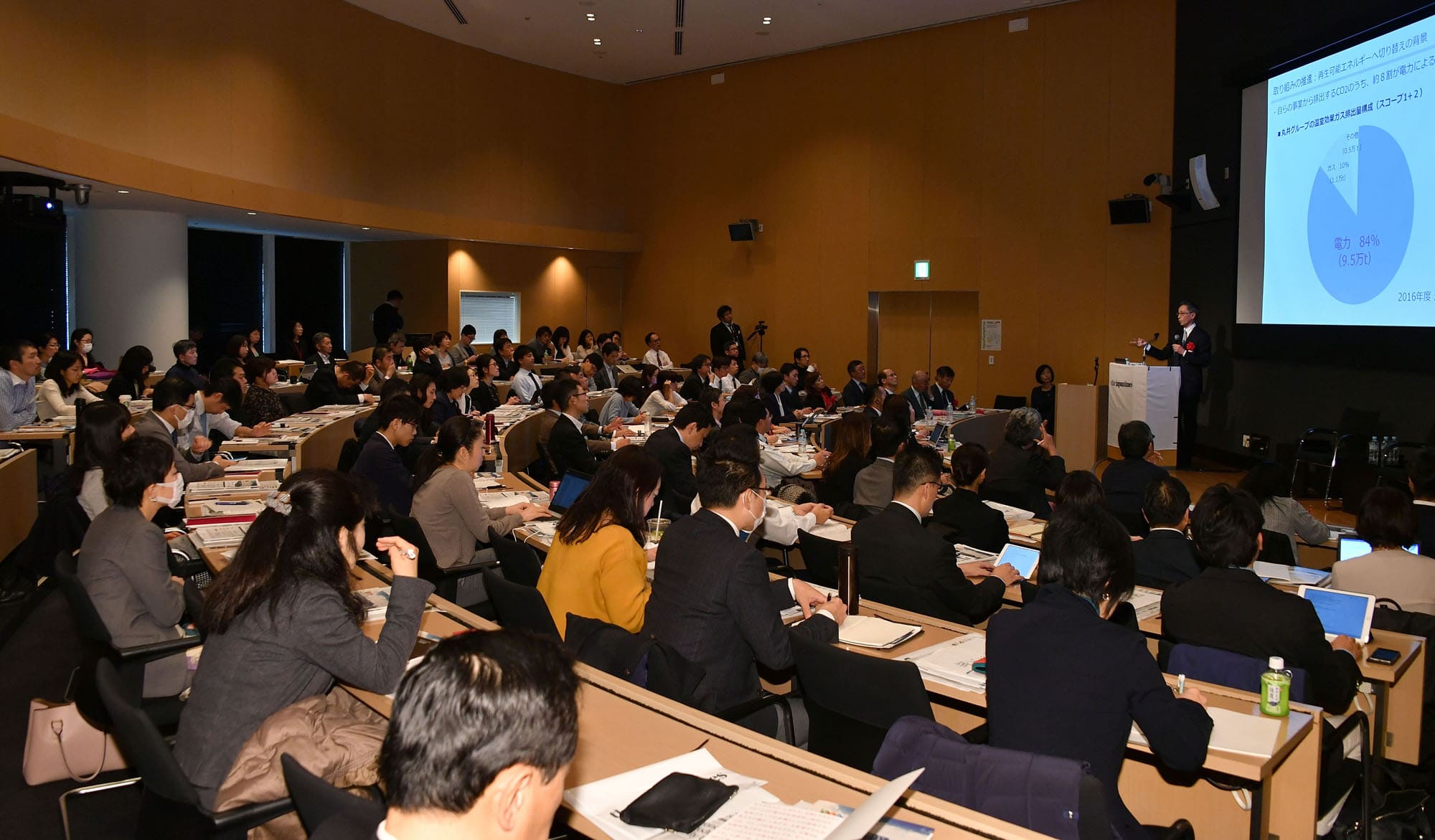March 26, 2024
Government leadership needed: expert Tamaki

International finance expert Rintaro Tamaki feels that despite the progressive efforts made by companies like those participating in CDP, awareness on climate change and related issues is still low in Japan.
“We need to see changes in the actions of individuals. In that sense, it is important that major companies, which are at the closest end of supply chains to consumers, engage in disclosures of nonfinancial information through CDP and lead the rest of the supply chains and industries,” said Tamaki, president of the research institution Japan Center for International Finance, in a recent interview with The Japan Times.
To accelerate the changes, he said, a framework that drives the transformation of actions by individuals as well as companies, such as the one for carbon pricing, is necessary. “It is the government’s job to create such a framework, but it is not advancing. Companies that are making disclosure efforts are starting to feel left alone, wondering what all the efforts are for, if they are on track and what they are getting in return,” he said.
In Europe, carbon pricing is already operational. By regularizing corporate information disclosure and making nonfinancial information financial, it obviously can motivate companies to enhance their sustainability efforts and provide useful information to shareholders and investors.
Tamaki attributes the lagging establishment of the framework in Japan partly to a lack of public interest in sustainability issues, including carbon emissions reduction. “These issues are not even among the main topics in elections. Politicians choose their tactics based on what will get them votes. Politics are not to be blamed. We need a stronger awareness among the citizens,” he said.
He pointed to the paucity of accessible information on reducing greenhouse gas emissions and related issues. “There is an abundance of separate pieces published in the media about different technologies and efforts, which indicate the way we are headed as a country. But these media reports do not come with the kind of pressure that requires people to persist no matter how much, how quickly and at what cost their lives may change,” he said.
In the case of Europe, “There are backlashes because the European countries are trying to tackle the issues head-on,” he said. This gives a country like Japan, which chooses to be a follower rather than a leader, another reason to be cautious. “Witnessing what is happening in the Western countries, Japanese people start to say ‘Look what happened!’ but those countries are going through such a major transformation that taking three steps forward and two steps back is a natural thing. We shouldn’t sit back and just keep watching, because going forward is the only way left anyway,” Tamaki said.
He said that when he was stationed in Paris for six years until 2017 as the deputy-secretary general of the Organisation for Economic Co-operation and Development (OECD), “There was a sense of urgency among financial institutions such as insurance companies and banks in France and in the rest of Europe to promote sustainable finance for the survival of their own business models.” But advanced countries are not always the leaders. “A country with a national plan designed from a relatively longer-term perspective on how its economic society should be tends to proceed faster,” he said, noting that democratic discussions may delay progress because they reflect only the level of awareness of the general citizenry, which means that advanced countries like the Group of Seven do not necessarily precede developing countries in adopting sustainability measures.
However, he said, climate change should be one of the simplest global issues for countries to tackle. “Unlike other kinds of problems, such as biodiversity, gender or declining birthrates, that are difficult to measure and unclear as to what exactly to achieve by when, climate change is unique in the sense that we all know what to do by when, and the outcomes of efforts are measurable,” he said.
Net-zero by 2050 has become the common commitment among the global community, and Japan has set a clear benchmark of a 46% reduction in emissions by 2030. The economic and financial sectors need to come up with business plans and investment decisions taking into account that benchmark and beyond. This is where platforms like CDP, which serves as a set of indicators of achievements, contribute.
In addition, he touched on the possibility of companies’ CDP disclosure efforts motivating them to further diversify their sustainability measures. He mentioned Sekisui House, which received A ratings from CDP in all three categories of climate change, forest and water security in 2023 — one of only two Japanese companies that were granted triple A’s and the first one in Japan’s housing and construction sector to ever do so. “The company has introduced internal carbon pricing, among other environmental efforts it has been making. There are things that the housing and construction industry can do — and are doing — such as promoting environmentally friendly buildings as long-term, high-value assets.”
He also referred to financial institutions and what they can do drive changes in actions among companies and individuals. “Banks pore over financial statements of existing and potential corporate borrowers, but such documents are just sets of measurable data from the past. Therefore, banks’ capacity to advise on futuristic views of companies’ business development is limited. The general terms for loans are either three or five years to begin with,” he said.
He then noted that the capital market has a higher potential of becoming a game changer due to the growing understanding among investors of the effects that nonfinancial information has on financial information. “In that sense, CDP offers an important set of lists and data for investors,” he said.
Tamaki also expressed his expectation that pension and life insurance, which are long-term investments, will come to play a greater role in the promotion of sustainable finance. “People are motivated to pay now for their own future happiness and security. But money would be of little help if the future environment in which they lived had deteriorated. There is room for the asset management sector to do more to create and promote products that contribute to the long-term stability of society and the preservation of the environment,” he said. He also recommended the more extensive adoption of sustainability-linked housing loans. “Interest rates on housing loans should take into account the fact that the gap between mortgage values of conventional houses and those of environmentally friendly houses will widen in a few decades,” he said.
He also voiced hope that awareness nurtured through the development of sustainability-related products for individuals will facilitate the faster establishment of a national framework for sustainability, including carbon pricing, so that companies like those that participate in CDP ratings will be rewarded adequately in the market.

